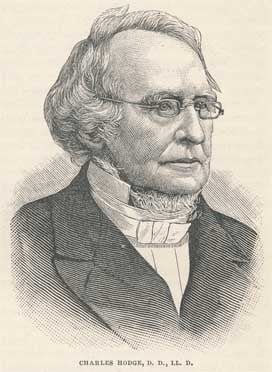Goodby 2012; Hello 2013 —
First of all, let this writer commend you if you have reached this day after having begun on January 1. You have read through the history of Presbyterianism and hopefully gained a better understanding of the Reformed church of which you are a member. You have seen the wrong decisions reached by men and churches which have led to disastrous results in the testimony of the faith. You have seen sacrificial actions which men and churches have taken which didn’t improve their lot any better on earth, but did give them God’s blessing in heaven. If we don’t learn from the past actions of this church history, we will often repeat the errors in the present and the future. That is one of the purposes of this year-long study.
Second, it was our aim that you have read through the Scriptures of the Old and New Testaments in this chronological manner which was placed down as a guide for you. I believe it was Ruth Graham, a Presbyterian missionary daughter and the late wife of evangelist Billy Graham, who once suggested that Christians should use different colored pencils or pens in their reading of Scripture for each year. That way, they will be able to follow their thoughts and feelings year by year and profit from their reading the next time they go through the Word of God in a year. Try that as you read the Bible in the new year upon us.
Third, this writer is also hopeful that this review of the Westminster Standards was helpful to review the great doctrines of the Reformed faith. I know that this writer found it most refreshing to type out each section of those biblical truths which he has read from his earliest years in a Presbyterian manse and church, and then a Reformed college and seminary. Added to that would be a forty-year ministry in five evangelical and Presbyterian churches.
We hope you will stay with us in the coming year. Tomorrow, January 1, 2013, we will pick up a new author, and take on a new look. For the most part, we will try to forge new ground and present new entries each day. So come back tomorrow and see what you think.
Words to live by: Keep on keeping on in the Word of God and the testimony of His church.
Through the Scriptures: Revelation 19 – 22
Through the Standards: Proof texts of the last judgment.
John 3:36
“He who believes in the Son has eternal life; but he who does not obey the Son will not see life, but the wrath of God abides on him.”2 Corinthians 5:10
“For we must all appear before the judgment seat of Christ, so that each one may be recompensed for his deeds in the body, according to what he has done, whether good or bad.”Romans 14:12
“So then each one of us will give an account of himself to God.”2 Peter 3:11 – 14
“Since all these things are to be destroyed in this way, what sort of people ought you to be in holy conduct and godliness, looking for and hastening the coming of the day of God, because of which the heavens will be destroyed by burning, and the elements will melt with intense heart! But according to His promise, we are looking for news heavens and a new earth, in which righteousness dwells.”

